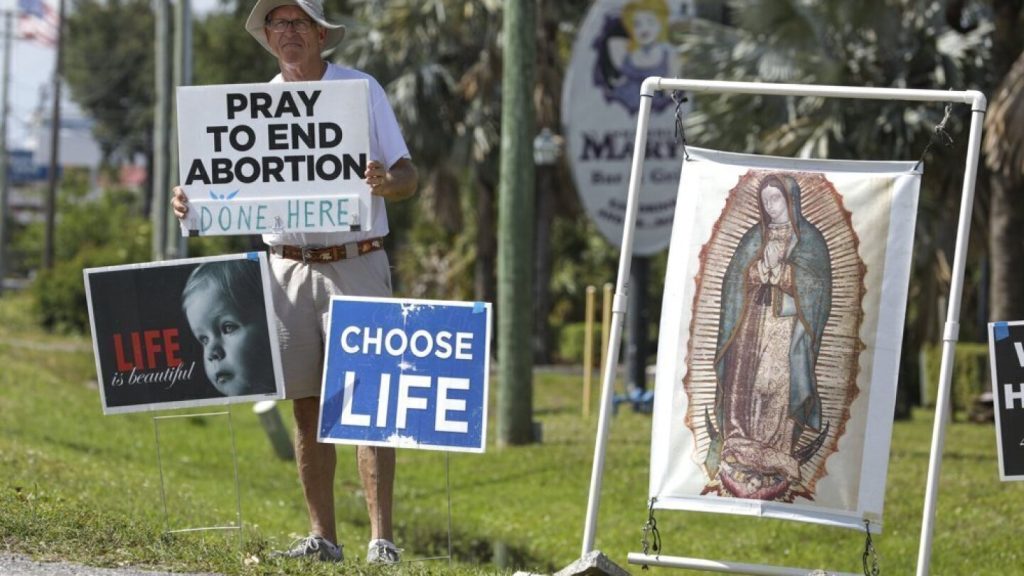State police in Florida are visiting the homes of voters who signed a petition to get an abortion rights amendment on the ballot in November as part of an investigation into alleged petition fraud. Republican Gov. Ron DeSantis has supported these actions, prompting criticism that this is an attempt to intimidate voters in the state. Critics argue that the probe is coming long after the deadline to challenge the signatures has passed. Ciara Torres-Spelliscy, a professor of constitutional and elections law at Stetson University College of Law, has stated that there is no legal precedent for the state to challenge the signatures at this point.
The proposed amendment, known as Amendment 4, aims to ensure that abortions are legal until the fetus is viable, as determined by the patient’s healthcare provider. Currently, Florida law bans most abortions after six weeks of pregnancy. The amendment states that no law shall prohibit, penalize, delay, or restrict abortion before viability or when necessary to protect the patient’s health, with one exception that requires parental notification for minors seeking abortions. The campaign for Amendment 4 collected over 997,000 verified signatures, surpassing the required 891,000 to qualify for the ballot.
State officials are investigating the petitions for alleged fraud, with concerns raised about forged signatures being verified as valid by election supervisors. Police have been visiting some voters’ homes to question them about signing the petition, and requests have been made to county-level elections supervisors to review thousands of signatures. DeSantis defended the investigation, citing evidence of signatures from deceased individuals, emphasizing zero tolerance for voter fraud. However, voter fraud is rare and typically isolated.
DeSantis established a police force dedicated to investigating voter fraud and other election crimes, following Trump’s claims of a stolen reelection. This force, the Office of Election Crimes and Security, reviews fraud allegations, conducts investigations, and can refer cases to the Florida Department of Law Enforcement. Despite the investigation, supporters fear that the amendment may be removed from the ballot, labeling it as political interference. However, legal experts like Torres-Spelliscy argue that there is no legal precedent for the state to strike the amendment this late in the process.
The investigation into the petition signatures has sparked controversy, with supporters of the amendment accusing the state of interfering with the democratic process. Local elections supervisors have begun sending ballot language to printers, indicating that the amendment is already in the process of being added to the ballot. Torres-Spelliscy referenced a previous decision by the Florida Supreme Court to allow a constitutional amendment to remain on the ballot despite controversy. The court rejected an attempt to invalidate a solar energy initiative in 2016, suggesting that the court may also uphold Amendment 4’s placement on the ballot in 2024.


